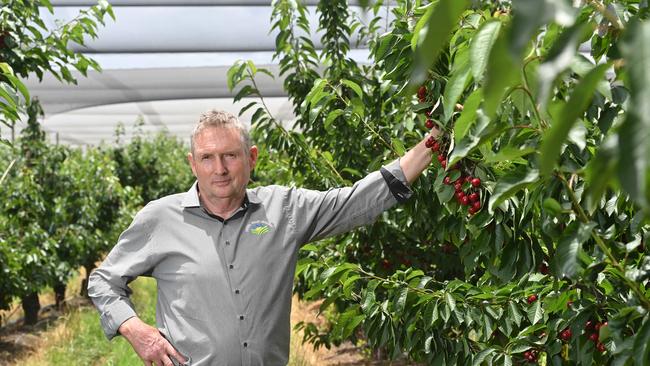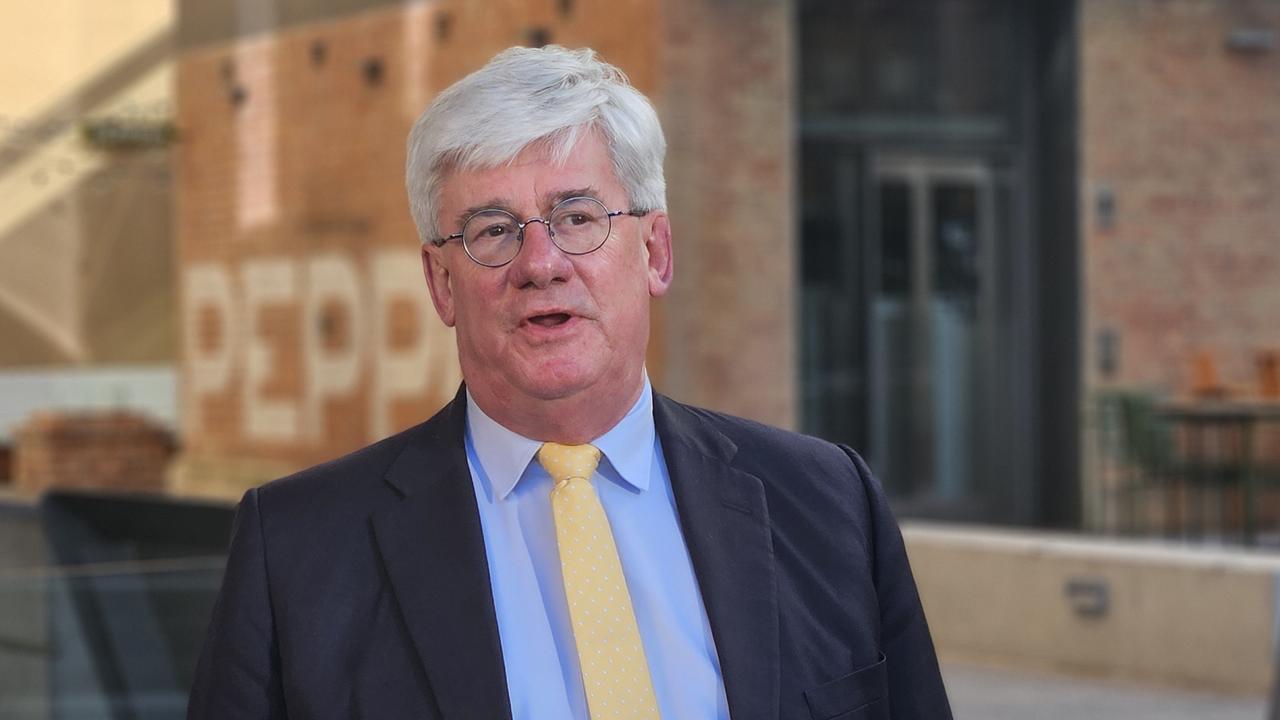Cherry-eating bats in the Adelaide Hills have destroyed crops pushing up the price of Christmas cherries
A Hills cherry farmer has warned consumers to brace for price rises this Christmas as local orchards are devastated by an “introduced pest”.

SA News
Don't miss out on the headlines from SA News. Followed categories will be added to My News.
The price of Christmas cherries are on the rise with hordes of grey-headed flying foxes feasting on the fruit in the Adelaide Hills and cutting down the number available for human consumption.
Torrens Valley Orchards managing director Tony Hannaford estimated the flying foxes, also known as fruit bats, had eaten 10 per cent of his cherry crop.
“It’s a problem that has become progressively worse over the last six-to-eight years,’’ he said.
“I guess we have lost at least 100 tonnes. It will certainly affect fruit prices leading up to Christmas.
“Birds are bad but they come through the day, these things come at night and strip your trees.’’

He estimated the cherry shortfall could push up prices by “a couple of bucks a kilo’’.
Mr Hannaford said he had spent more than $4 million netting his fruit as it was the only way to combat the bats, but warned those increased costs were also likely to be passed on to consumers.
“Ultimately, the consumer will pay for it one way or another either through lack of supply or higher prices at the retail end,’’ he said.
It is thought the flying foxes come from the colony that lives in Adelaide’s Botanic Gardens.
According to the Green Adelaide website, there were 46,000 grey-headed flying foxes in Adelaide in early 2024.
“Grey-headed flying foxes have been visiting South Australia for many decades, but only in 2010 did they set up a permanent camp at Botanic Park in the city,’’ it says. The flying foxes are native to Queensland.
They are also regarded as a “threatened species’’ and protected under the National Parks and Wildlife Act.
Fruit Producers SA executive officer Grant Piggott said cherries were still “good value’’ this Christmas but agreed that the flying foxes were an increasing problem.
“It is a relatively widespread problem that seems to be getting worse,’’ Mr Piggott said. “They are an issue for fruit growers generally throughout the Adelaide Hills.’’
He said apple growers “copped it’’ during autumn.
Mr Piggott also said netting was the best solution.

“They are a native animal so there is no ability to limit their numbers,’’ he said.
He said fruit producers were currently researching a proposal to send to Primary Industries early next year pitching the case for a government subsidy that would help growers buy nets.
However, Mr Hannaford said there was a case for more direct action.
“I don’t like them at all because they are not native to South Australia, like rosellas or lorikeets. These things are an introduced pest as far as fruit growers are concerned,’’ he said.
“We should be able to shoot them or exterminate them and find where they roost and get rid of them but they are protected.’’




